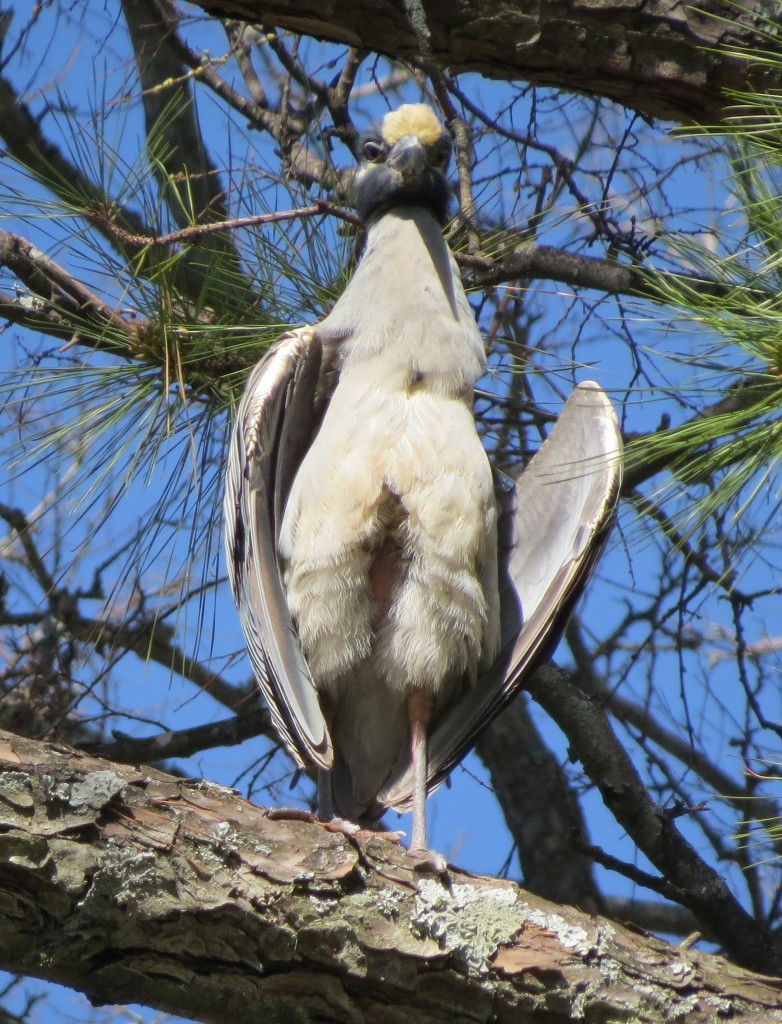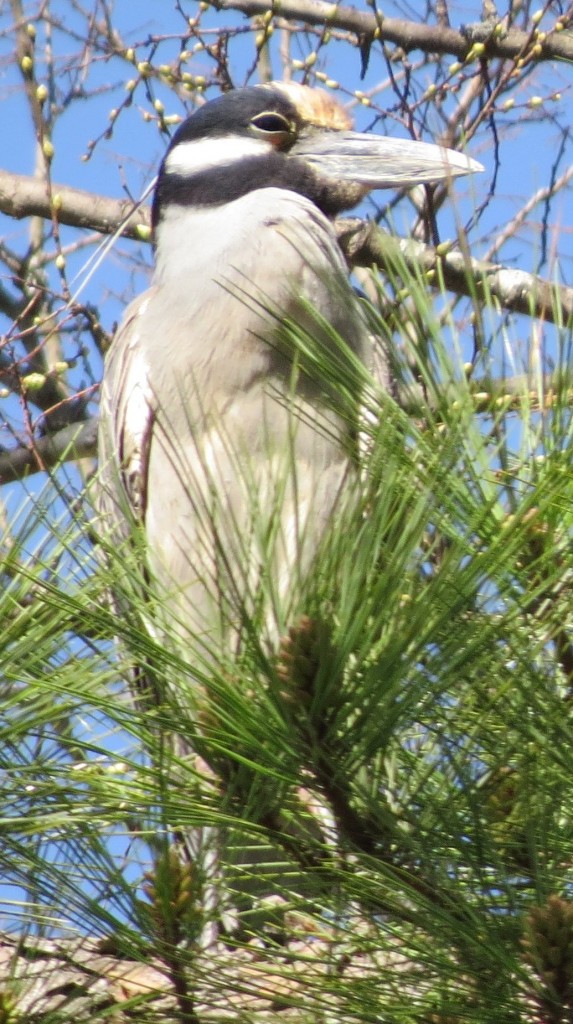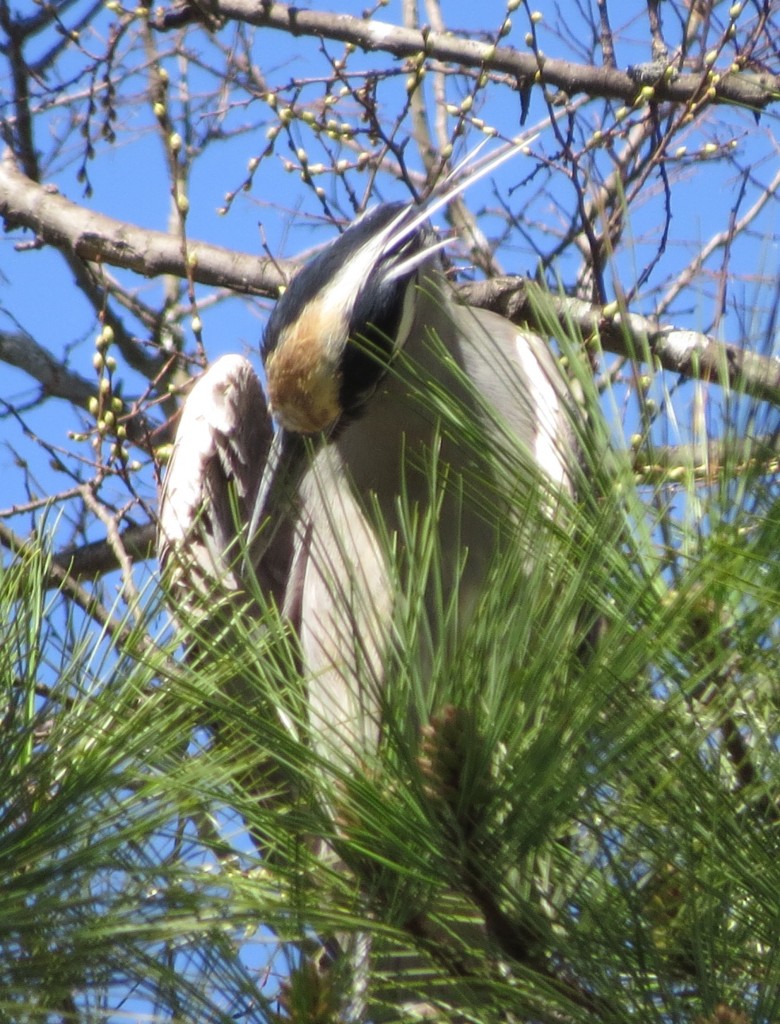I love spring! Every March, the Yellow-crowned Night Herons mysteriously come to town, nesting in my city of more than a million people. I don’t know why! These birds usually nest in coastal wetlands and feed on crustaceans. But here they are again, nesting 40 feet over a suburban street, 200 miles inland. Where’s the water? Don’t know! But in previous years, I’ve found crayfish exoskeletons under their nests, so they’re finding creeks somewhere nearby. We don’t have as many herons here as we used to, the city is growing so fast – trees are mowed down for new houses, habitat sadly destroyed. But for today, they’re still here. Yay!

See the brood-patch of parted feathers on the female’s belly — bare skin warms her eggs better than feathers do.
I was lucky to catch the herons out in the open with full sun last week, an unusual photo opportunity. On the female’s belly you can see a “brood patch,” where the feathers have parted to allow her to warm her eggs with bare skin. You can ID these birds by the gray body, black face and bill, white cheek, and yellowish stripe on top of the head. They’re about two feet tall with their long legs extended. Beautiful!
What can you do to help Yellow-crowned Night Herons? Leave trees standing. Protect streams and surface waters from pollutants such as motor oil, construction sediment, pesticide runoff. When you protect small crustaceans and insects, you’re also protecting the birds that eat them. For more on Yellow-crowned Night Herons: http://www.allaboutbirds.org/guide/Yellow-crowned_Night-Heron/id







